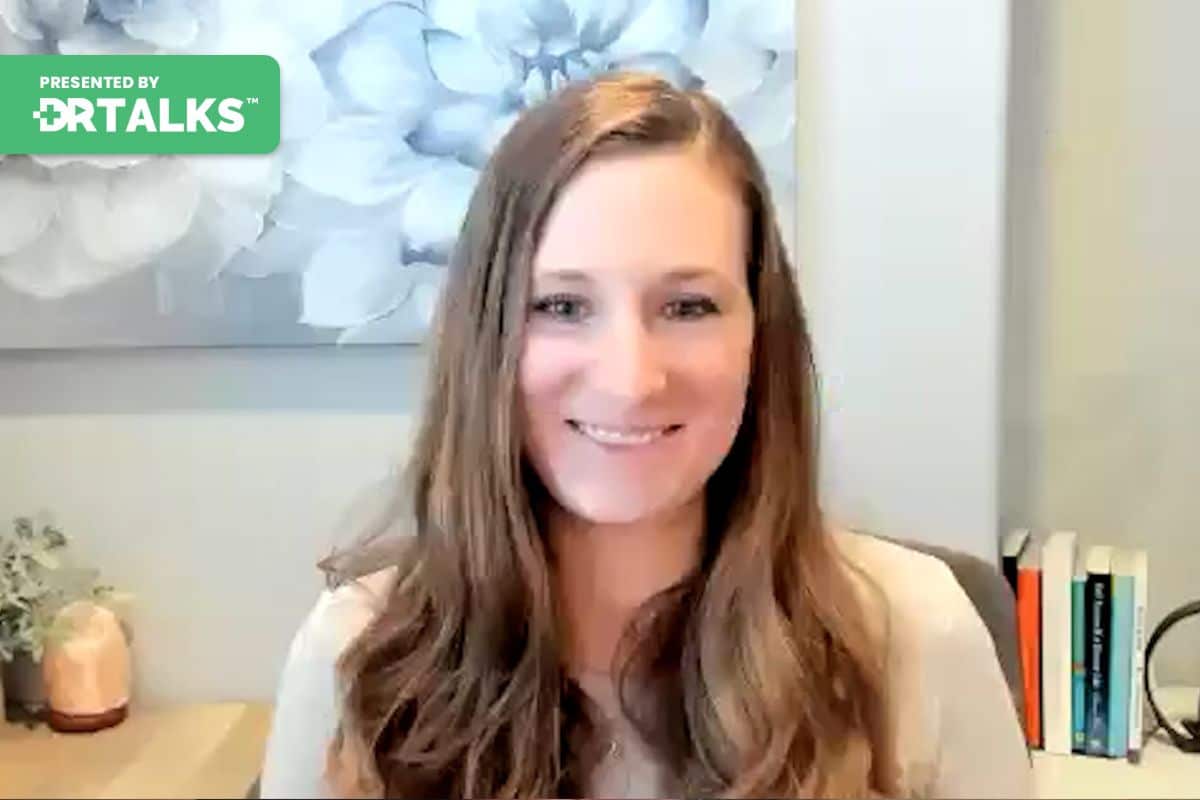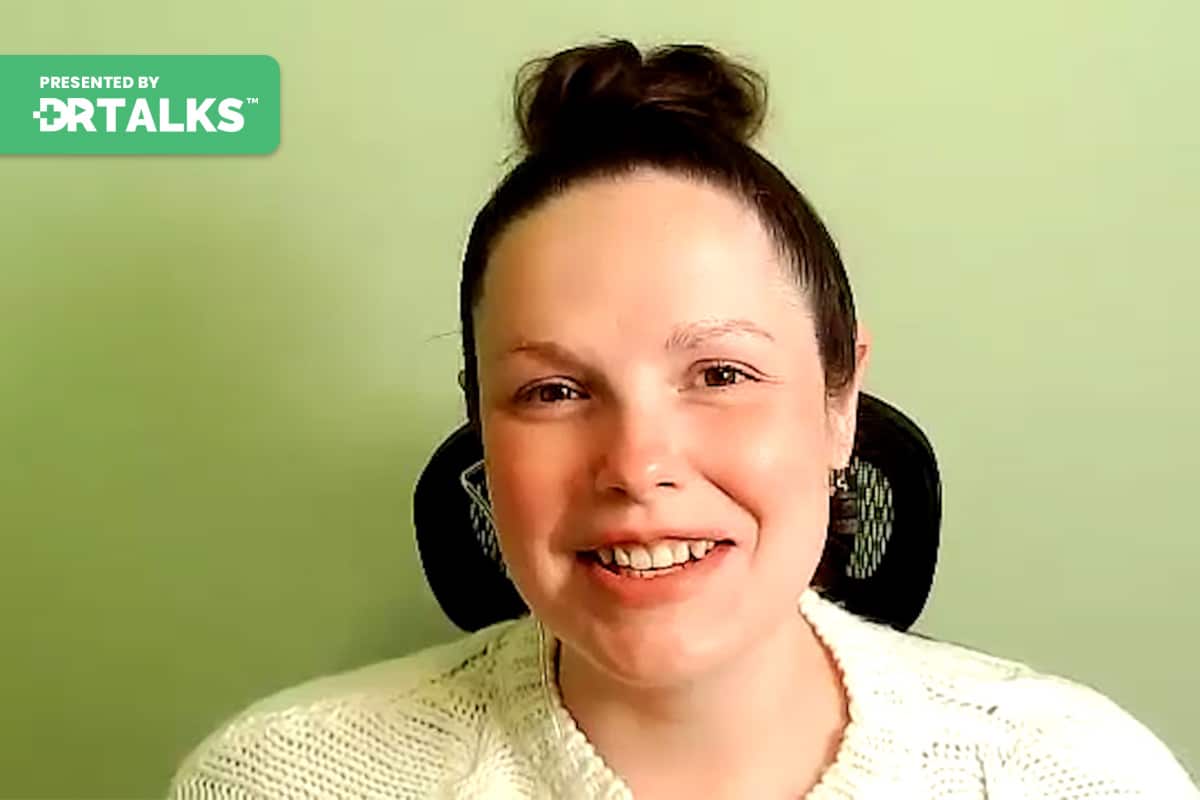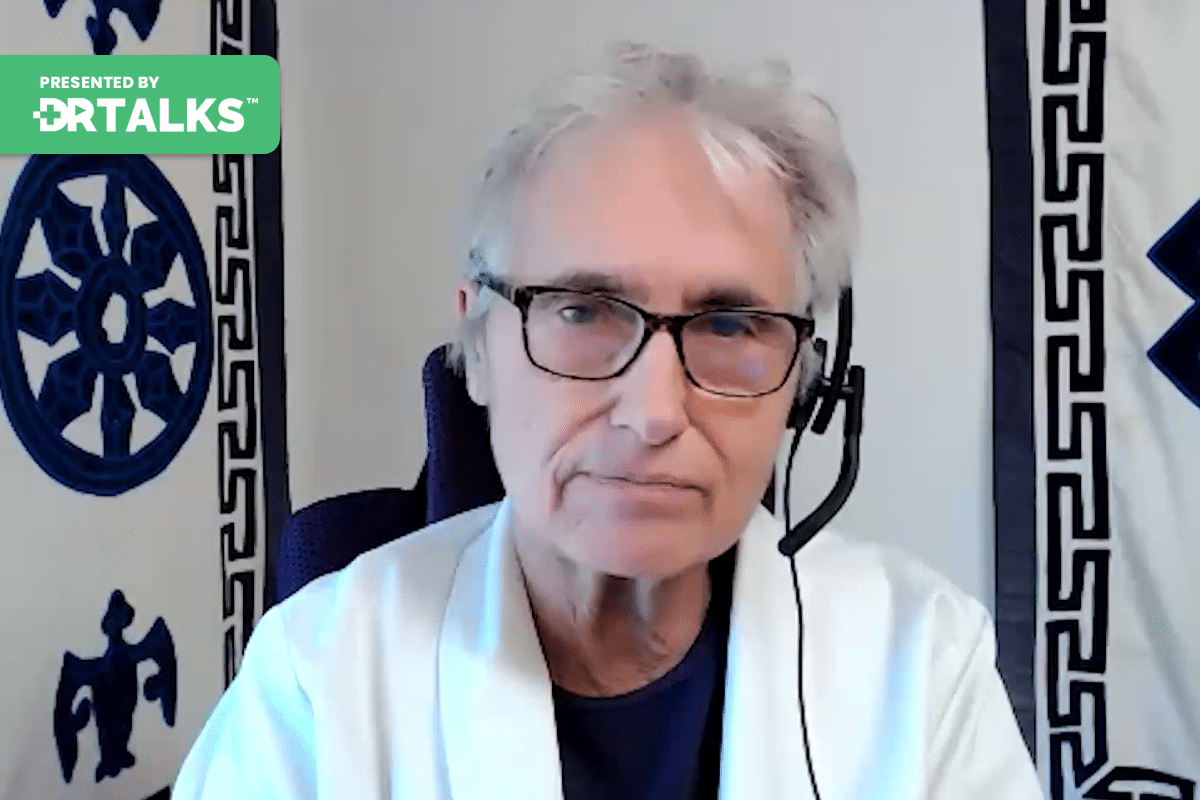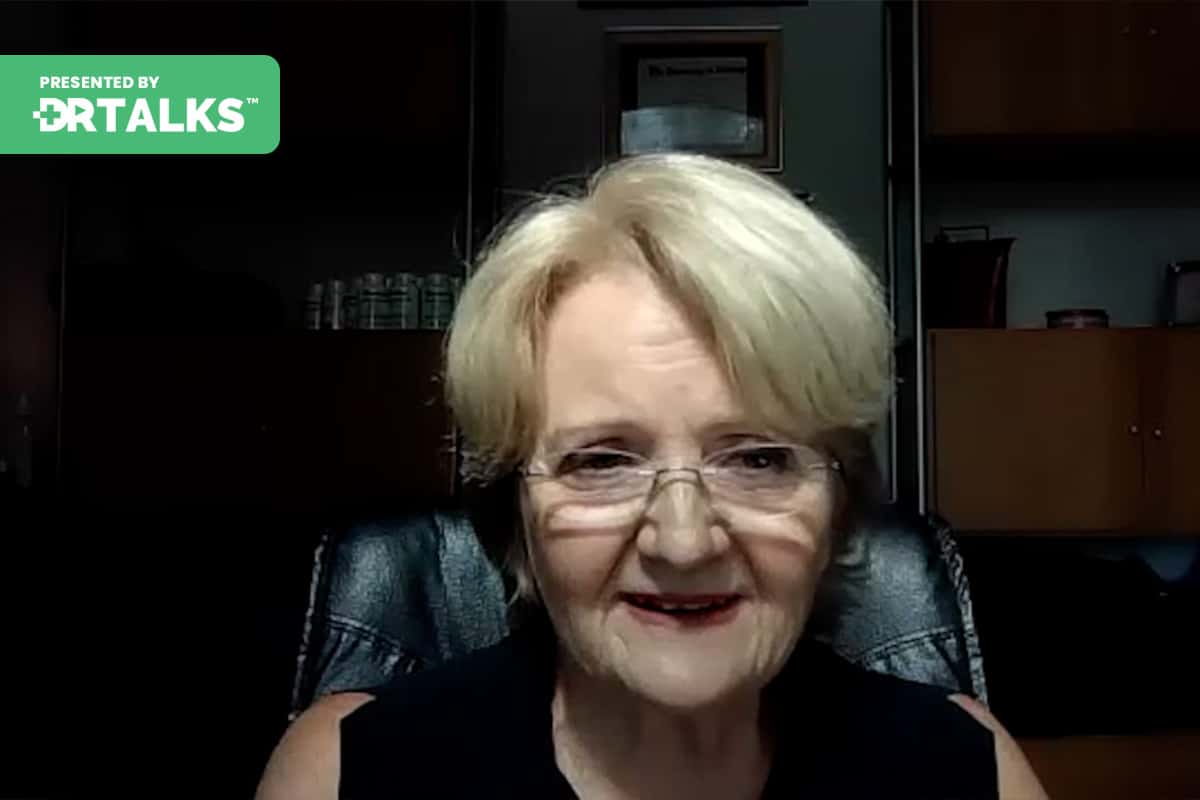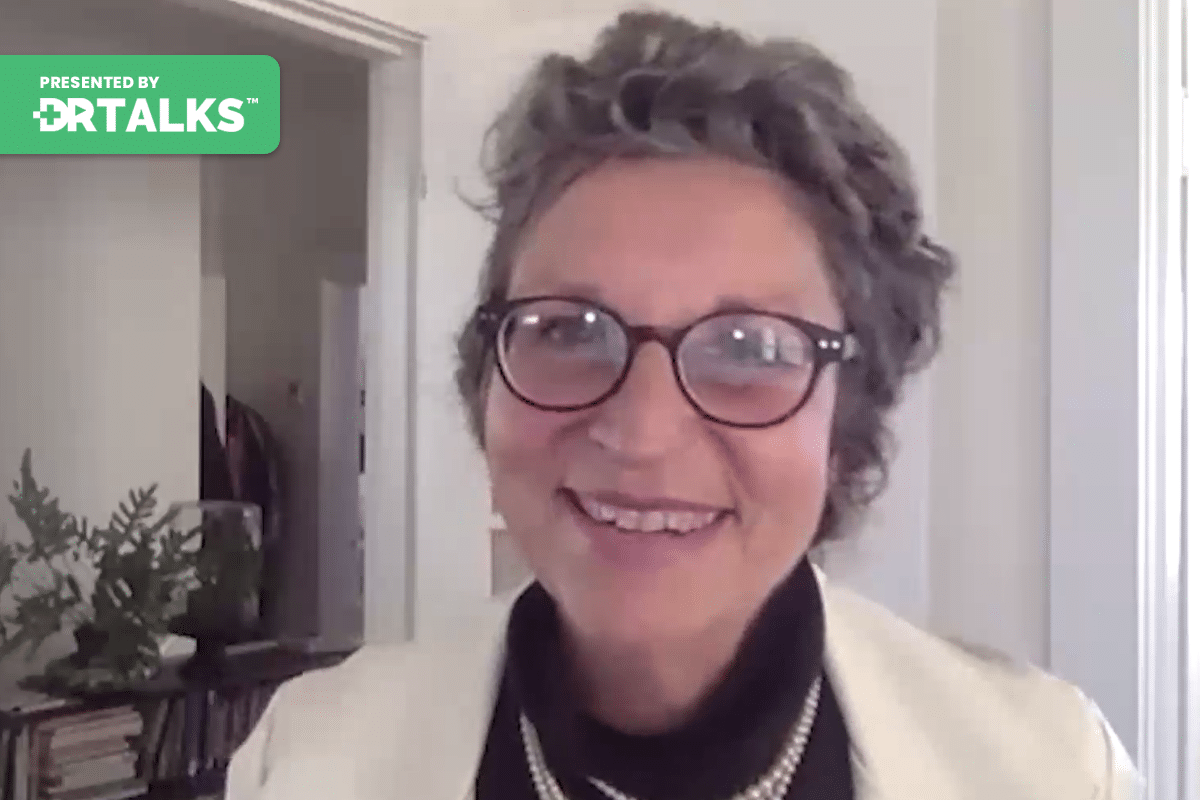Join the discussion below

Wendie Trubow, MD, MBA, IFMCP is a functional medicine gynecologist with a thriving practice at Five Journeys, and is passionate about helping women optimize their health and lives. Through her struggles with mold and metal toxicity, Celiac disease, and other health issues, Dr. Trubow has developed a deep sense of... Read More
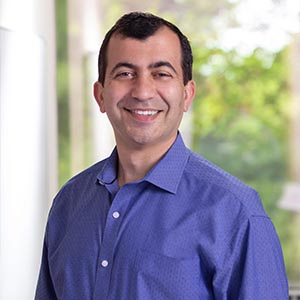
Edward Levitan, MD, ABIOM, IFMCP
As a double board-certified physician, I don’t just focus on the physical symptoms of my patients. I believe that their overall well-being is a result of the harmony between their body, mind, and spirit. My extensive training in both traditional Western medicine and Eastern practices like acupuncture and Shiatsu allows... Read More

Dr. Tiffany Caplan's passion for supporting people using functional medicine stems from her own health journey. She has also seen multiple family members diagnosed with autoimmunity after years of suffering from various, obscure ailments. Since then, she has been passionate about helping those with autoimmune conditions regain their health and... Read More
- What is autoimmunity, autoimmune disease and how to reverse them
- The rapid rise of autoimmune conditions and their triggers
- How to know if you have a predisposition for an autoimmune condition
Wendie Trubow, MD, MBA, IFMCP
Hello and welcome to this episode of the Environmental Toxins, Autoimmunity and Chronic Diseases Summit. I’m Dr. Wendy Trubow. My co-host is Dr. Ed Levitan. And we are so excited for our guest today. Dr. Tiffany Caplan. She’s the bestselling author of The Lupus Solution and founder of the Kaplan Health Institute and co-founder of Central Coast Center for Integrative Health. That’s quite a mouthful, by the way, and that’s an integrated practice in sunny California, seeing a wide array of chronic conditions and helping patients achieve optimal health. Tiffany, welcome. We’re supersite. You’re here today.
Edward Levitan, MD, ABIOM, IFMCP
Welcome all of.
Dr. Tiffany Caplan
Having me as a great topic for a summit. Yes needs to get out there more.
Wendie Trubow, MD, MBA, IFMCP
Totally. So I left a lot out of your bio because I wanted to ask you about it, because I know that your past gave rise to your passion. Can you talk about how your experience personally led to your professional development?
Dr. Tiffany Caplan
Yeah, a couple of ways. So I got into functional medicine as a patient first. That’s how I was first introduced into it. I was struggling with some chronic issues myself going through in the middle of grad school. I started to have tremendous brain fog and anxiety and depression and I was really like spiraling downhill and of course traditional medicine was just like, Oh, here’s an antidepressant, you know? And it was kind of like, put a Band-Aid on it, but it didn’t make me feel any better.
Edward Levitan, MD, ABIOM, IFMCP
You were depressed, right? You had a deficiency of Zoloft, right?
Wendie Trubow, MD, MBA, IFMCP
Yes.
Edward Levitan, MD, ABIOM, IFMCP
Me out.
Dr. Tiffany Caplan
You’re just a student, right? So I went to a I found a functional medicine doctor who was like doing something different. And I was like, this is cool. She did all these labs. She did like a stool test, and she was like, Look at all this stuff. I’m like, I don’t have got problems. Like, What are you doing? And then she really just helped me put all the puzzle pieces together, and it made it really clear that my lifestyle and my diet and all of these other factors were making me feel so bad and so starting to change my diet and change my lifestyle and work on the stress and like make all these changes, like, totally changed my life. Saved my life. I was at a very low place at that point and it just it clicked. I was like, Oh, my God, this is amazing. I could do so much more to help people doing this. So that’s what got me into functional medicine. And then in our practice, me and my husband, we started really focusing on like autoimmune conditions because we found that that was something that was so common. We were seeing so much of it and I had a family member get diagnosed with lupus and then it was like, Oh my gosh, nobody knows anything about lupus. So we just started, you know, trying to get the word out like, yeah, you can do something when you have a chronic disease, when you have an autoimmune disease, you can do something about it. You don’t have to be stuck with it. And so that’s what we focus on. Teaching people is like all the tools that they could be doing to get their health in order. Like I like I experience. So it’s yeah, I’m, I love what I do because it’s just so rewarding.
Wendie Trubow, MD, MBA, IFMCP
Did you end up with an autoimmune diagnosis yourself?
Dr. Tiffany Caplan
I did not. I work very hard to prevent one.
Wendie Trubow, MD, MBA, IFMCP
Yeah, a.
Dr. Tiffany Caplan
Lot of autoimmune stuff in my family. Everything from like.
Wendie Trubow, MD, MBA, IFMCP
Aura.
Dr. Tiffany Caplan
And Hashimoto’s and Crohn’s and ulcerative colitis and all this stuff. So I worked very hard to like make sure I’m not going to get an autoimmune disease. Right.
Wendie Trubow, MD, MBA, IFMCP
That’s one legacy you don’t want to continue. Right. Yeah.
Edward Levitan, MD, ABIOM, IFMCP
Okay. I used to cook cake on that.
Wendie Trubow, MD, MBA, IFMCP
So yeah, yeah. I didn’t get the message or the memo before, you know, pursuing that legacy, unfortunately, but we’re reversing it. So I ate out without being sick last week, two weeks ago, three weeks ago. So it’s good there’s hope in autoimmune world. That’s what I’ll say. So let’s run down. So our goal, our personal goal is the resolution and reversal of autoimmune disease as well as the prevention of autoimmune disease. So you’re an expert in this. So let’s talk about why. What are the things that cause someone to be sort of set up or predisposed to having an autoimmune disease?
Dr. Tiffany Caplan
Yeah, great question, because a lot of people’s first instinct is to go to genetics like, oh, I just have it in my family. I just doomed to have it, you know? And that kind of is the trap for other things, other chronic diseases like diabetes and stuff too. But we know in the functional world that it’s preventable and it is something that can be reversed when you have it. So what we’re trying to do for people is educate them on the root causes of why they can be more predisposed, like you said, to developing a disease in the first place. Some of the root causes that we find really common or sometimes overlooked in the standard medicine model because, you know, they’re not a necessarily treatable problem with them. Pills are like leaky gut or something can set up somebody to have an autoimmune disease or having a hormone imbalance or having toxin exposure or stress adrenal dysfunction. And so a lot of those things aren’t conventional diagnoses and they don’t really get looked at. But when we start to peel back the layers of like, why did somebody get sick in the first place? Those are some of the common root causes that we’ll see like over and over again.
Wendie Trubow, MD, MBA, IFMCP
Yeah, and I think did I miss Leaky Gut? Did you mention it? And I missed it. Okay. So yeah, I mean, like, you can’t have an autoimmune disease if you don’t have a leaky gut, so. Okay, so genes play a role, but not a huge role.
Dr. Tiffany Caplan
Right? It could be. What kind of makes it easier for your body to get triggered in an abnormal way? It can kind of set you up, but it doesn’t mean that it’s going to happen. You can definitely work with your genetics to help support it functioning better and prevent the problem from happening.
Wendie Trubow, MD, MBA, IFMCP
I mean, that makes sense because 40% of the population has one or both of the acute DKA. HLA antigens for celiac, except celiac is only like 1%. So if your genetics was running the show, everyone who had the HLA subtype would have or juvenile rheumatoid arthritis because that’s on the same gene. So everyone would have that if they had the gene. So that really makes sense that your genes are not your destiny because okay.
Edward Levitan, MD, ABIOM, IFMCP
So what are some of the triggers? Because you talk about triggers.
Wendie Trubow, MD, MBA, IFMCP
What other than OBGYN residency?
Edward Levitan, MD, ABIOM, IFMCP
Other than that, yes. Because that is a large population.
Wendie Trubow, MD, MBA, IFMCP
But don’t do it over your own residency and you’ll never get an autoimmune diseases. Right. Okay.
Edward Levitan, MD, ABIOM, IFMCP
That’s one way. Yes.
Dr. Tiffany Caplan
So I think it all boils down to stress and stress resilience like your body will experience so many different things and factors over time. If it’s able to if it’s healthy enough to handle those different types of stress, it can kind of compensate and move on and not trigger something abnormal. So when we think about stress, there’s like obviously mental emotional stress and going through a residency or something, but then there’s also physical chemical stress, the like having too many toxins or having an even hormonal imbalance or having food sensitivity or having a microbiome imbalance. So down to like a cellular level and like a physical chemical level, there is lots of different things that create stress on the body. Like, for example, one of the things that I see gets overlooked all the time is like blood sugar. How important blood sugar is. Like your blood sugar needs to be at a pretty stable, consistent level or be able to be handled well in order to not create this like constant stress on your adrenals and your cortisol and your body as a whole, because that’s the energy source. Right. And so just looking at like what creates stress on the body and then if there’s too many stressors at once, that’s when things start to break down. Right.
Edward Levitan, MD, ABIOM, IFMCP
I like to talk about blood sugar, because in conventional medicine, when at least when I was taught we were.
Wendie Trubow, MD, MBA, IFMCP
Back in the dark ages.
Edward Levitan, MD, ABIOM, IFMCP
Dark, dark ages, like a long time ago, we it was the Flintstones days. We were at 5.7, able to see a 5.7. It’s no big deal. It’s just pre-diabetes. Know you’re really not diabetic. It’s nothing to worry about. And we know that at 5.7, you’re already having significant damage from sugar. And we look for markers that are way, way, way below that and trying to really convince alter a patient’s reality of weight. My doctor, my regular doctor said this was fine.
Wendie Trubow, MD, MBA, IFMCP
Well, we’re the strict parent.
Edward Levitan, MD, ABIOM, IFMCP
I guess, we’re this.
Wendie Trubow, MD, MBA, IFMCP
Is, this is hey, like I’m a strict parent and your doctor is a little bit easier going and I’m stricter.
Edward Levitan, MD, ABIOM, IFMCP
So I think it’s not actually stricter. It’s comes from different goals. So we say we want people to be vibrant through at least a hundred years old and a typical agency of 5.7. You’re not going to get there very likely. So really looking at it’s not just, oh, blood sugar regulation. Yes, ups and downs are huge and we a lot of people are now using continuous glucose monitors.
Wendie Trubow, MD, MBA, IFMCP
And that’s an awesome thing. And one level, even above or below, I don’t even know is. Kind.
Edward Levitan, MD, ABIOM, IFMCP
Of behind is like making sure that you’re blood sugar is just not too high overall and then you get continuous glucose monitor.
Wendie Trubow, MD, MBA, IFMCP
Yeah, right. I was I was just thinking about, you know, I’ll share with you that one of our colleagues, boyfriend’s mother did a program that we put on. So it’s kind of far removed. But she was eating a standard American diet. She drinks three Cokes a day for maybe and she did this four week program to transform how she was eating. And during the course of the program, her headaches resolved, her skin rashes resolved. She stopped having irritable bowel. She got off the coke for that period of time, off the source. And we were just talking about her because it’s been a year since that program and she’s not maintained any of it. And all of those issues have returned. And this thing about blood sugar is, you know, one can of coke has 39 grams of sugar in it. So that’s I think that’s something like 12 teaspoons practically of sugar. And just the impact that has on every system in our body. I mean, not even the toxins and not.
Edward Levitan, MD, ABIOM, IFMCP
The toxins, the high fructose corn.
Wendie Trubow, MD, MBA, IFMCP
Sirup, which has the mercury side with the side of our family. I’m glad for this side of mercury in glyphosate, like what’s going on?
Edward Levitan, MD, ABIOM, IFMCP
Crazy.
Wendie Trubow, MD, MBA, IFMCP
We love you said magic again just like this. It’s a magic word. It sends me off the cliff because it’s everywhere. Okay. Yeah. So if someone I mean, when I look back 100%, it was stress combined with the way I was eating, combined with crappy genes. So genes play a role. But that on top of the exposures, on top of the sleepless nights, on top of the stress, on top of the stress, I mean, I really remember being in residency and being like, I am not right for.
Edward Levitan, MD, ABIOM, IFMCP
Happy that that was not discounted by having an amazing boyfriend at the time.
Wendie Trubow, MD, MBA, IFMCP
He was amazing. He really, you know, he would do acupuncture on me like once every other week when I saw him. He was great because he’s a good offset.
Edward Levitan, MD, ABIOM, IFMCP
That’s what I was going for.
Wendie Trubow, MD, MBA, IFMCP
Glutton for Punishment then married me and had to deal with like the celiac. Anyway, back to the point because we’re all about preventing autoimmune disease. So if someone’s recognizing, okay, I have these potential triggers, I’m constantly in a state of stress or I’m not sleeping enough or yeah, maybe I could clean up the way I eat potentially. How? How do they even know where to start? Right. What’s what’s the what’s the magic first step?
Dr. Tiffany Caplan
The good question and it is different for everybody. Like I’m sure you guys see too, like everybody has their different triggers or their main areas that they need to focus on. And for some people, like getting off the soda is like the the biggest thing that they could do. And like, that’s the one thing to focus on at first, you know, and build tiny habits, take tiny steps. Other people are like all ready to go into like a full reset of their diet and their lifestyle all at once. And so we kind of have to meet the person where they’re at. But I think what somebody can do themselves is just start taking kind of an inventory of what they notice in their body and starting to pay more attention to what it’s telling them. So the way we look at symptoms, symptoms are kind of like if we were cards or check engine light, like our way of noticing that there’s something going on in her body. And so if somebody is noticing that they’re tired all the time or they have some pain or they’re getting headaches or they’re having diarrhea or bloating, start to kind of take note or journal what they’re noticing and when and if it’s connected to anything else.
Oh, yeah, it was really stressed. Oh, yeah, I didn’t sleep. Oh, yeah, I ate this certain food. And then they can start to kind of investigate it for themselves and start to put some of those pieces together. But really where we find the biggest difference is when somebody works with functional lab testing to know exactly what’s going on in their bodies that they’re not just guessing. And in that way, too, we can start to narrow down what are the biggest culprits like? What are the areas that we should focus on to build a good foundation that the house doesn’t fall down as we’re building it? So like something as simple as like a blood sugar problem could be a priority in fixing so that your cells work so that everything else works or making sure somebody is digesting so that the food becomes less of a problem. So just trying to figure out for that person what the biggest dysfunctions are and what’s trickling into everything else, because sometimes the symptoms that they’re chasing are really just a response to something else that’s going on, right?
Edward Levitan, MD, ABIOM, IFMCP
So I mean, people come into your practice and they, they have an autoimmune disease and you can fix them in the week, right? Because your doctor.
Dr. Tiffany Caplan
Does get my magic wand out. And there we go.
Edward Levitan, MD, ABIOM, IFMCP
I keep forgetting mine at home. I keep telling I.
Wendie Trubow, MD, MBA, IFMCP
One and it broke. It shattered. I was so bummed. How long does it take to like, if. Yeah, what, what what does it take and how long does it take?
Dr. Tiffany Caplan
What does it take and how long? So again, everybody is so different. I have seen some people turn around pretty quickly because like, let’s say they’re eating the standard American diet, they’re, you know, not doing anything right or not sleeping. There’s constantly stress. They’re not moving, they’re sedentary. And then they just start to, like go through an elimination diet and like so many symptoms, start to clear up in a matter of weeks. And I’ve seen that type or that end of the spectrum. And then I’ve also seen where, you know, we’re doing all these things and it takes months to start to get the person to a more stable place because maybe they’ve had this autoimmune disease for like two decades, three decades, you know, like their whole life. They’ve had problems. It’s not going to go away overnight. And so typically, like the patients that we see that come in with an autoimmune diagnosis, because sometimes we get people that haven’t had the diagnosis, but they still know that there’s something wrong and we can still help them get some answers. But just, you know, when there’s something like Aura or even a M.S. or lupus patient, typically we’ll work with them for six months to a year to really get them to a good, stable place. And that’s our goal, is to get them to a place they know how to keep taking care of themselves from that point on. So usually it’s like a minimum of six months that will work with somebody.
Wendie Trubow, MD, MBA, IFMCP
How much work are you doing on toxins? What role is that playing in your practice?
Dr. Tiffany Caplan
So it definitely look at that as like one of the root causes. And for some people that’s one of the top things that is continuously keeping their immune system unhappy and causing problems. Like I can think of a couple of people on the top of my head, there was a mutation that we were working with for a while. I think we did work with her for like probably six months and she was doing really good for a couple of months and then she came back and she was all flared up and she couldn’t figure out cause she wasn’t doing anything different with her diet or lifestyle. Like everything seemed fine, she wasn’t doing anything different. And we really started to talk about, well, what could be the issue? Turns out she got a new mattress and it was like off gassing and causing her to have a reaction or had like a a patient who went on vacation and her symptoms got so much better. She came home. They came back, and it ended up that she was using an oil diffuser every night in her bedroom.
And like she stopped using that and things got better. So toxins definitely could be a role. And sometimes that is like the thing we’ll focus on. Sometimes we’re just kind of making sure the body can handle the toxins and like working on the liver detox pathways and the stool, like being able to eliminate through having good bowel movements or sometimes glucose iron glucose ions like the staple for when we’re talking about autoimmunity is like one of the things that, you know, literally regulates our immune system. So that’s an antioxidant that can help us detox. So depending on, you know, if that’s the main driver of their immune system challenge, that might be something we focus on first. Or it might be just kind of cleaning up everything else in the body can handle the toxins better and then educating the person on like where the toxins come from. Right?
Wendie Trubow, MD, MBA, IFMCP
Yeah. So huge plug for if you’re in the market for a new mattress, make sure that it doesn’t have flame retardants in them because they are tremendous endocrine disruptors and throw your system off. And and I always say like if something needs to be important.
Edward Levitan, MD, ABIOM, IFMCP
If you decide to smoke in your bed, it’s really important. Yeah.
Wendie Trubow, MD, MBA, IFMCP
If you’re a smoker and you live in a row house and you’re going to smoke in bed, you need that. Yes, but otherwise you don’t need that. But I think I always say if it needs to be off gassed, maybe don’t buy it. Right? Like think about if it’s going to stink when you get at home and that’s another plug for filter your car, especially if you get a new car, filter out that new car smell. Even though it’s tempting because that new car smell is 300 chemicals coming your way. So someone who’s hyper sensitive, hypothetically speaking, like someone on this call, nobody would do well with that. I mean, nobody we know of.
Edward Levitan, MD, ABIOM, IFMCP
Right? Right.
Wendie Trubow, MD, MBA, IFMCP
Yeah. How come we’re going to say.
Edward Levitan, MD, ABIOM, IFMCP
Well, I was going to say, are there any other supplements or nutrients that you tend to recommend for autoimmune, specifically for autoimmunity.
Dr. Tiffany Caplan
Specifically for autoimmune? Not not specific. Because, again, we’re not really just treating like the autoimmune disease is looking on like what’s making the immune system not function and be balanced. So actually there’s things like nutrients, like glucose iron that help with the Treg cells of the immune system. So like vitamin D and omega threes and glucose iron like those can help with the T regulatory cells that kind of balance things out. So yeah, those are kind of staples for pretty much anybody that has an autoimmune disease. But other than that, it’s really like what’s causing this.
Wendie Trubow, MD, MBA, IFMCP
Yeah, I mean, do you remember when we were learning about vitamin D, the most fascinating part of it is that it regulates the tight junction junctions in your gut. So if you’re taking vitamin D, that can assist with not having leaky gut versus not taking vitamin D, especially when you’re talking offline about how you live in California. And it’s beautiful like 361 days of the year. But we live in Massachusetts and it’s beautiful, like 95 days in year.
Edward Levitan, MD, ABIOM, IFMCP
- It’s beautiful.
Wendie Trubow, MD, MBA, IFMCP
Sunny California. That’s why it’s called sunny California. But anyway, that that if you’re living in a place that’s not as nice, you definitely need vitamin D and everyone needs it so that you can help regulate your gut and your immune system and your tight junction so you don’t develop leaky gut. So I think it’s just it was amazing learning about that.
Dr. Tiffany Caplan
Like and even in California, you would be surprised how many people that we get that are just low in vitamin D. Like I can literally think of just two people on the top of my head that when we tested their vitamin D levels without taking any vitamin D, they had somewhat normal levels. Like everybody has deficiency no matter what they have going on. Right. It’s just our demand for it is so much higher. So even people that spend a lot of time outside like really, you know, maybe not enough.
Wendie Trubow, MD, MBA, IFMCP
Well, I think it makes sense because when you’re outside in some in California, you’re going to put sunscreen on or a hat on or you’re may you’re still working in California, so you’re not sitting outside working you’re sitting somewhere professional yet anyways. So you when you.
Edward Levitan, MD, ABIOM, IFMCP
Retire.
Wendie Trubow, MD, MBA, IFMCP
You’re not yeah. You’re not getting the benefit of being in California or if you are you’re putting on sunscreen too. You don’t get skin cancer. So it’s so yeah. Huge plug for vitamin D. Yeah. Why do some people not get autoimmune diseases or why? Why do they say, okay, I haven’t felt well for years, but I just finally got my autoimmune disease. What’s that about?
Dr. Tiffany Caplan
Right. Like, it just came on overnight, right? Yeah. I think that’s a common misunderstanding, is that it can happen just like that. It really is usually a process of years to get to that point because what’s happening is the body is trying to constantly compensate for things. So it’s it’s always trying to keep you alive and help keep you safe and fix the problem. And so when there’s too many problems or the problems have been so chronic, that’s when it really comes to a head and becomes a diagnosis. Right. An issue. Or it gets to the point where there’s so much tissue destruction that’s happened that now it can be symptomatic and showing up positive on testing. So the average time for like at least something like a lupus diagnosis, the average time for somebody to have symptoms before they can get an official diagnosis.
And the label of what they have going on is about seven years. And that symptomatic. So like there was probably years and years before that that they weren’t symptomatic, but it was kind of in the works already. Right. And so again, looking at like all the different stressors that a person has on their in their body and their lifestyle, like the things that they can control. And that’s what this is all about, too, is like figuring out things you can control. Because a lot of this you can through your diet, through lifestyle, through stress management, right? So that’s why some people can not get an autoimmune disease or it is they they recognize how to take care of themselves in a way that’s going to help their body handle what it goes through on a regular basis. And it gives them some of that resilience and to be able to handle stuff so it doesn’t trigger a problem.
Wendie Trubow, MD, MBA, IFMCP
Got it. Cool. I mean, it sounds like you love what you do. You mentioned that at the beginning. Like you really.
Dr. Tiffany Caplan
I just I love it. It’s like everybody is like this puzzle and I get to put all the pieces together and and I just see light bulb moments going off when I talk to people about, like, what’s going on in their body, I just see them like, oh my God, nobody ever explained that to me. And it’s like, Yeah, this is cool. You could do something about it too.
Edward Levitan, MD, ABIOM, IFMCP
So where can people find more stuff about you were working people find you. How can they connect?
Wendie Trubow, MD, MBA, IFMCP
Yeah.
Dr. Tiffany Caplan
And you just go to our website, Caplin Health Institute. It’s Caplan with a C Caplan Health Institute, AECOM. And there’s more information, our blog and everything on there you can our lupus solution book is written for lupus patients to help them understand what that disease is and looking looking at it through a functional lens. So if somebody has lupus, that would be great book. But just in general like autoimmunity as a way to look at a functional medicine perspective of like the root causes of why somebody develops something like lupus or an autoimmune issue. So our book could be a good resource for some people. But yeah, just online.
Wendie Trubow, MD, MBA, IFMCP
This is awesome. All right.
Edward Levitan, MD, ABIOM, IFMCP
That’s a lot of information.
Wendie Trubow, MD, MBA, IFMCP
Thank you. There’s a lot I think there’s a lot of ways that people could look you up, work with you, find you. I mean, because it’s critical because we’re essentially a country headed for an autoimmune crisis.
Edward Levitan, MD, ABIOM, IFMCP
I think I saw in the paper that by 2035 that over 50% of the world will be obese. Wow. Not just America. It’s just ridiculous.
Wendie Trubow, MD, MBA, IFMCP
That’s only 12 years away. Just just to put some reality in the.
Edward Levitan, MD, ABIOM, IFMCP
Conversation, it’s it’s and that’s a major driver, obviously, of autoimmunity and yeah.
Wendie Trubow, MD, MBA, IFMCP
Chronic diseases.
Edward Levitan, MD, ABIOM, IFMCP
It’s crazy.
Wendie Trubow, MD, MBA, IFMCP
So and toxins are the root cause of obesity, one of them.
Dr. Tiffany Caplan
And it’s preventable, which is the good news.
Wendie Trubow, MD, MBA, IFMCP
Yes. Total reverse flow.
Dr. Tiffany Caplan
When you understand it.
Wendie Trubow, MD, MBA, IFMCP
Yes. All right. So on behalf of everyone, I mean, this is great. So thank you for being here for this episode of the Environmental Toxins Autoimmunity, Chronic Diseases Summit. For the people who are just joining in, you’re going to want to go back and listen to this. Our guest is Dr. Tiffany Caplan. And for the rest of you who have been with here that the whole time, go follow her and find her and have a great day. Thank you, Tiffany, for being here.
Dr. Tiffany Caplan
Thank you.
Downloads

